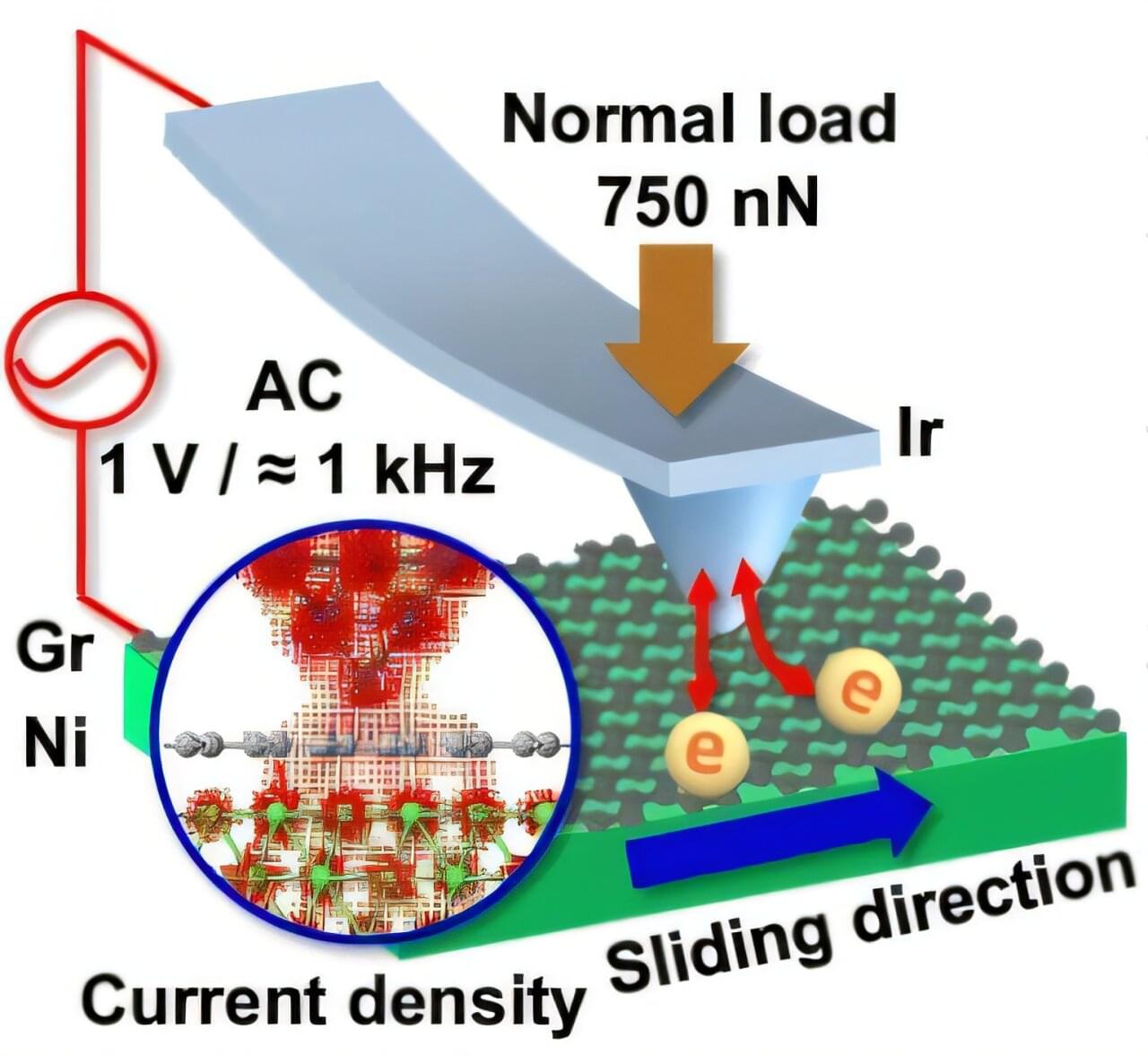A research team led by Prof. Tian-Bao Ma from the Department of Mechanical Engineering at Tsinghua University has proposed a novel strategy to reduce friction and wear by inducing dynamic electronic density redistribution through the application of an alternating electric current.
This method enables flexible and instantaneous modulation of friction by adjusting the amplitude and frequency of the alternating current. Remarkably, it maintains low friction and wear over long durations under high contact pressure and current density, requiring only a low driving voltage.
The findings are published in the journal Nature Communications.
